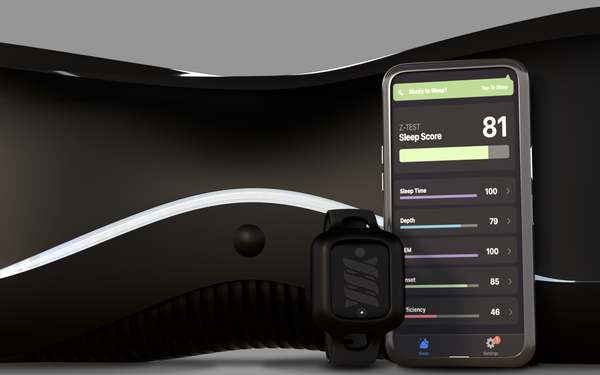
Dr. Dan Cohen, a
neurologist, has spent decades helping people get better sleep.
In 1982, he founded CNS, a company that pioneered automated diagnostic technology for sleep labs -- and then, in 1994, launched
Breathe Right nasal strips.
Dr. Cohen’s latest product is the SolTec System, whose sleep and stress benefits include the restoration of deep (or delta) sleep which normally declines as
people age, he told Pharma & Marketing Insider during a chat last Friday which, serendipitously, was also World Sleep Day.
“By the time you reach your mid-to-late ‘40s,
you’ve lost 60% to 70% of your deep sleep,” Dr. Cohen said. That’s crucial, he explained, since the benefits of deep sleep (the third stage of non-REM sleep) include
self-repair/regeneration, regulation of the immune and endocrine systems, and stress reduction. Indeed, he informed us, the loss of deep sleep parallels “the increase in disease as we get
older.”
advertisement
advertisement
We also learned that Dr. Cohen isn’t just chairman, CEO and co-founder of SolTech Health, but also a SolTec user.
“I’m 71 now,” he related, and
“had lost most of my deep sleep in my early ‘60s.” Since using SolTec, however, “I now average as much deep sleep as a 25-year-old. I’m back at my high school weight and
able to grow back muscle.”
So how does SolTec work?
The system consists of two parts: a wrist-worn device and a magnetic generator placed under the bed or near the bed’s
footboard. The wrist device functions like other wearable sleep trackers in monitoring and analyzing sleep in real time, but when it senses that the user is moving to a different stage of sleep, it
alerts the generator to kick in with specific magnetic frequency waves that interact with the nervous system to enhance that stage of sleep.
SolTec is thus the only sleep tracking system that
also provides a real-time therapeutic element, Dr. Cohen said, adding that he hopes to license other wearable manufacturers to run the SolTec generator off of their devices.
Such partnerships
will help reduce the SolTec System’s hefty price -- which is now $1,999, lowered to $1,299 if the buyer agrees to be part of either a research study or a stress survey.
Dr. Cohen also
expects pricing to decrease as sales volume increases.
For now, just 250 to 300 units have been sold, but then again the product has yet to officially launch.
In “pre-launch
phase” since late last year, the product's debut is planned for this summer, Dr. Cohen said.
The first buyers, coming on board largely via word of mouth, are comprised mostly of people
aged 50+ for those seeking sleep improvement, but “more variable” for stress reduction, Dr. Cohen said, adding that “no gender skew is evident.” And, as might be expected based
on current price points, “our users tend to be mid to higher-income individuals at this time.”
The SolTec System is sold online only through SolTecHealth.com, with no medical
requirements needed.
But that might change for specific groups as Dr. Cohen revealed that SolTec will be seeking FDA approval for treatment of such conditions as peripheral neuropathy, with
studies already underway.